Filament Style
Filament Diameter
Filament diameters can range from 0.004” to 0.032”. It will proportionally affect the wire gauge needed. A larger filament diameter needs a large wire gauge to hold the filaments together. However, a large wire gauge will be difficult to hold small filament diameters.
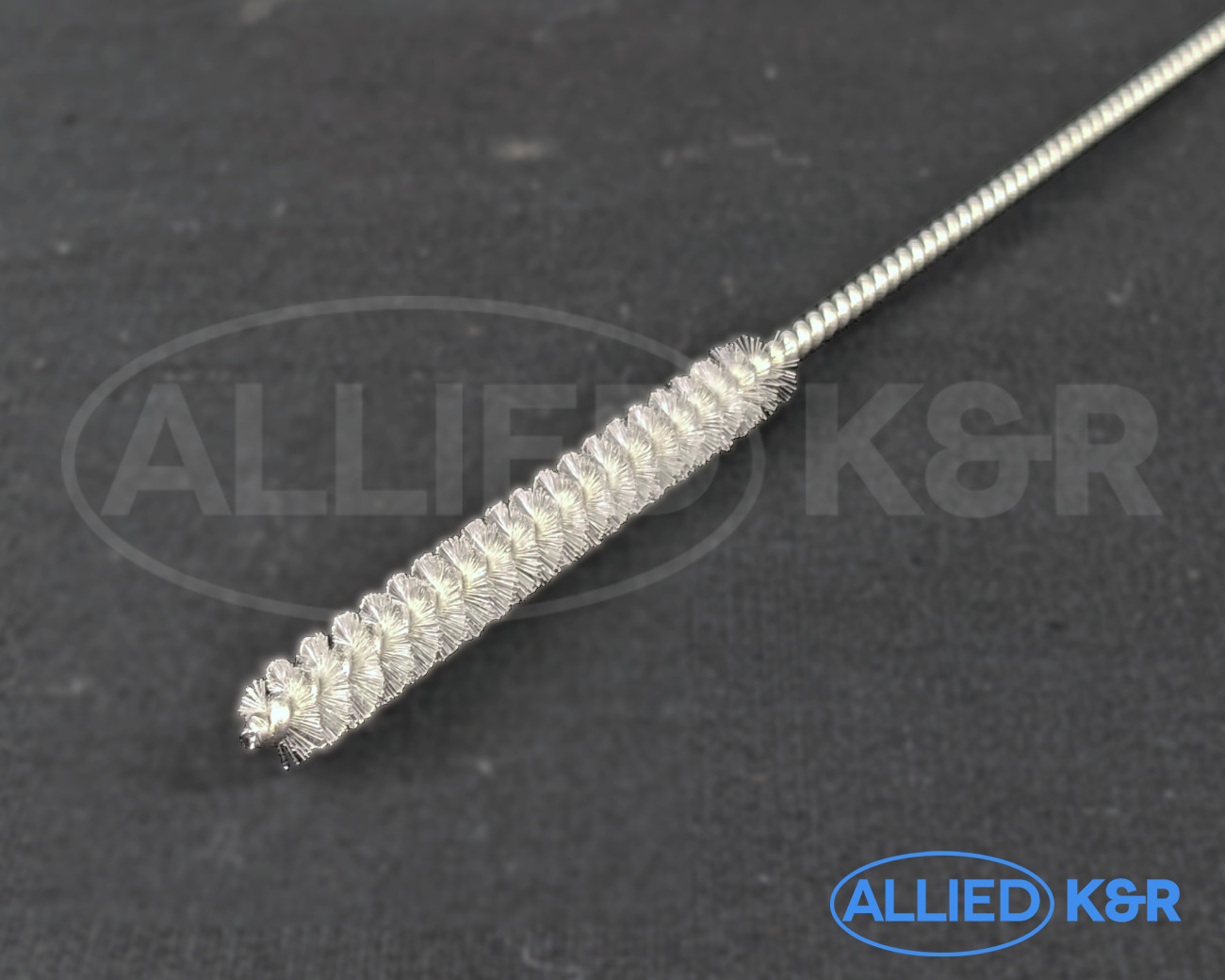
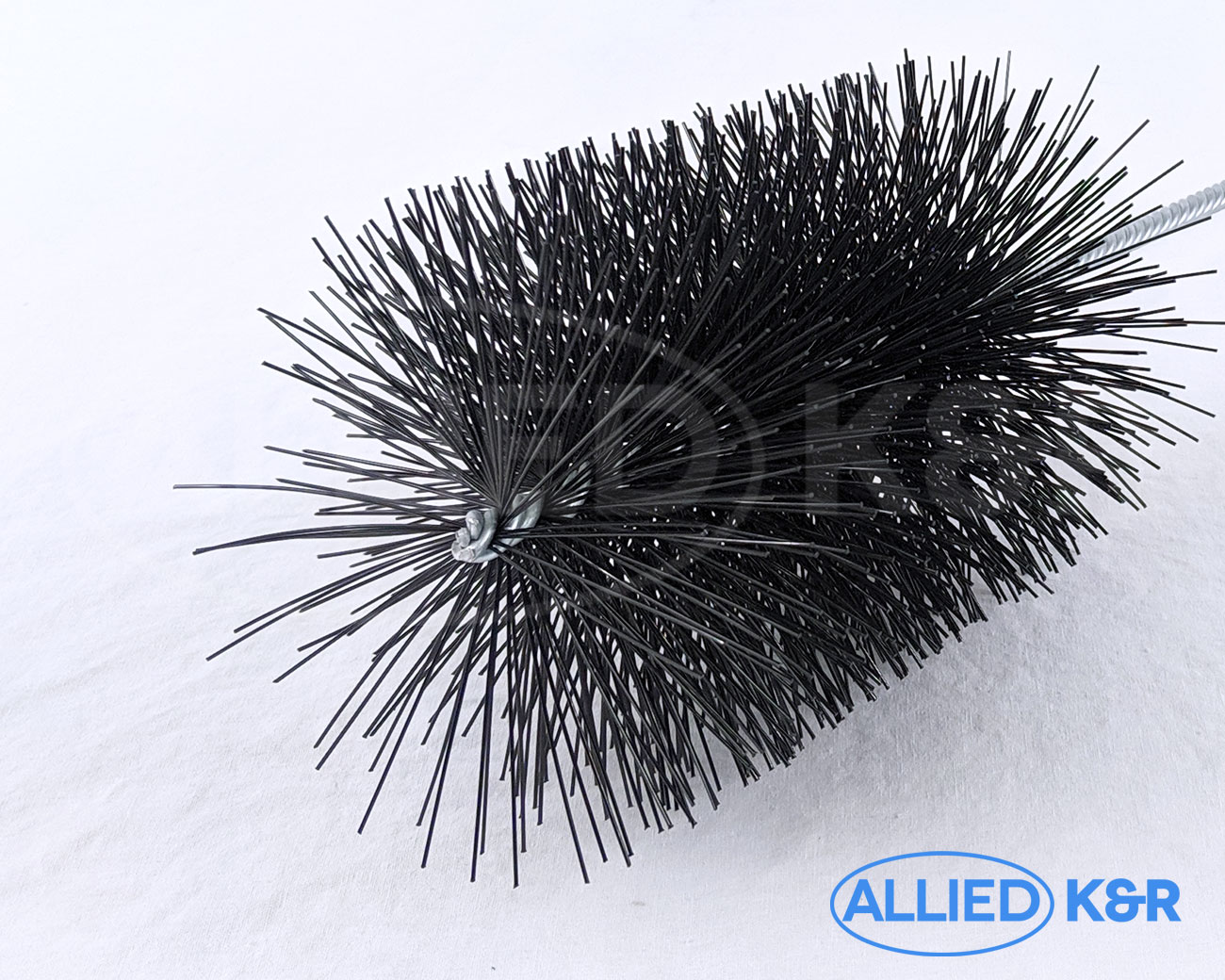
Filament Shape
Level Filament
Synthetic Filament can be leveled or crimped. Level filament has a straight consistent shape. It will follow the path of the twisted wire, stay close together and leave a gap between each turn of the wire.
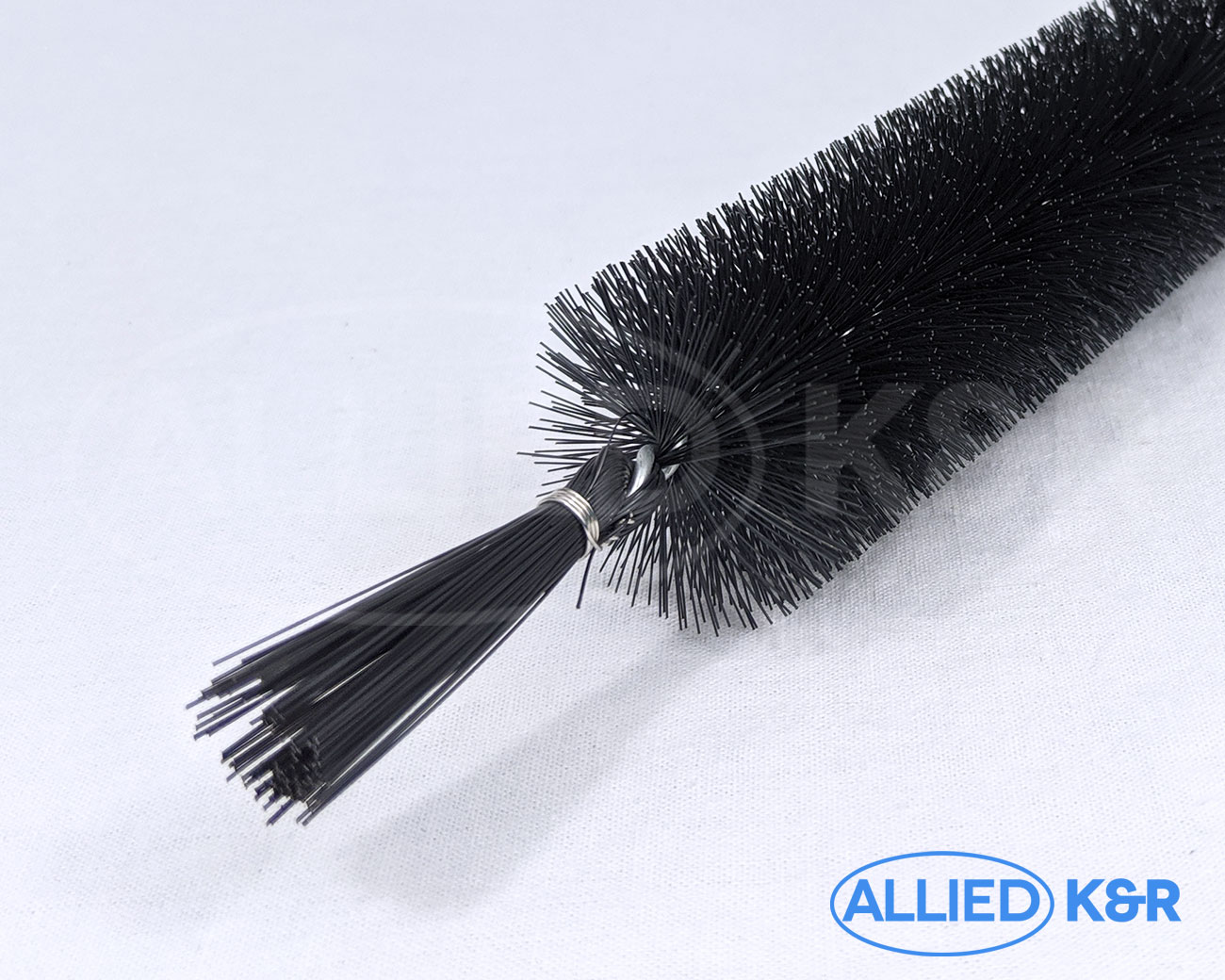
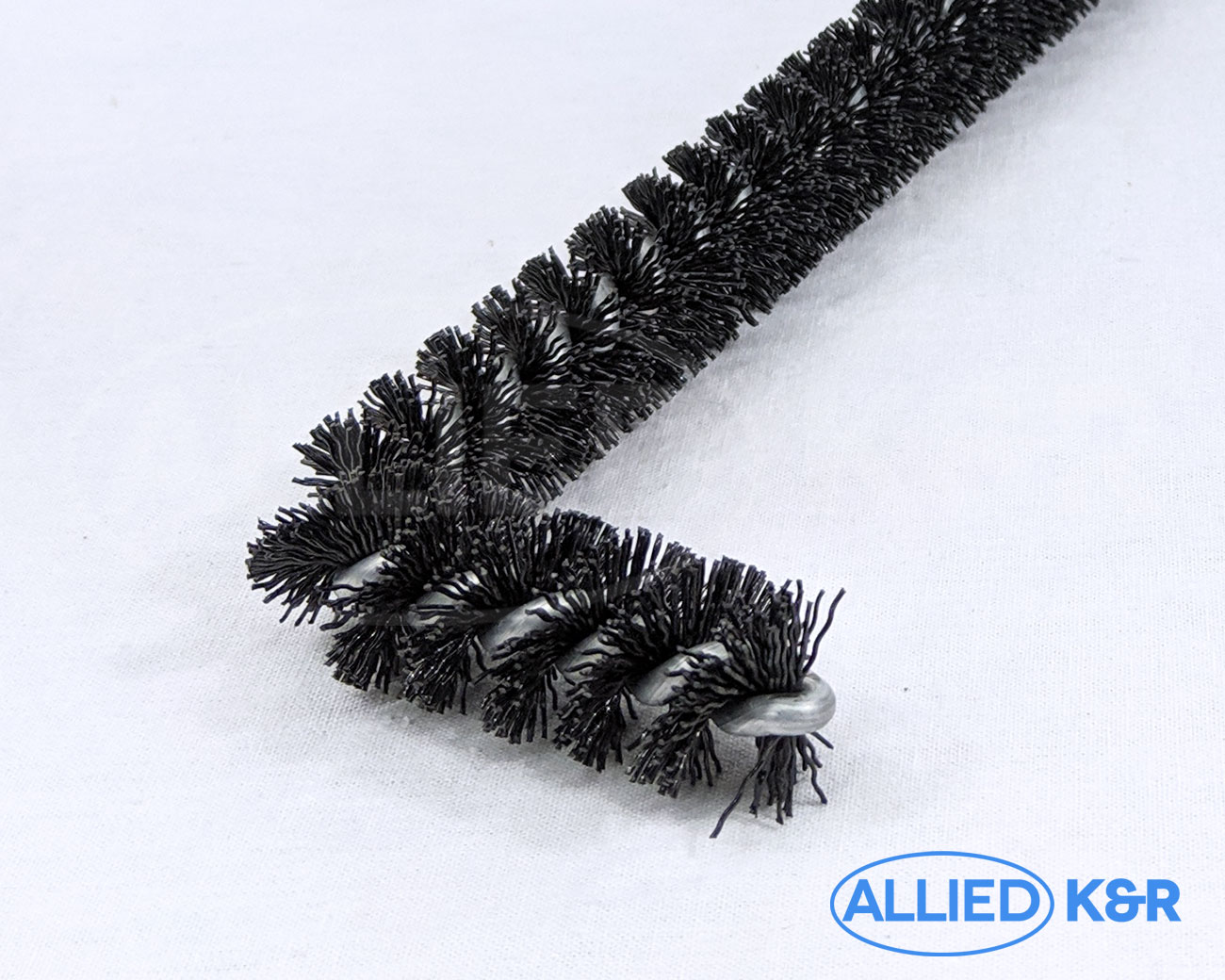
Crimped Filament
Crimped filament has a sine wave shape. Crimped filament will spread out, reduce the gaps between filaments and can reduce the filament density. Often, it is specified in waves per inch.
Filament Material
Nylon
Nylon is one of the most popular synthetic polymers. It is has high abrasiveness and high heat resistance. The absorbency rate and chemical resistance depends on the Nylon type. It’s ideal for soft wet cleaning and abrasive applications.
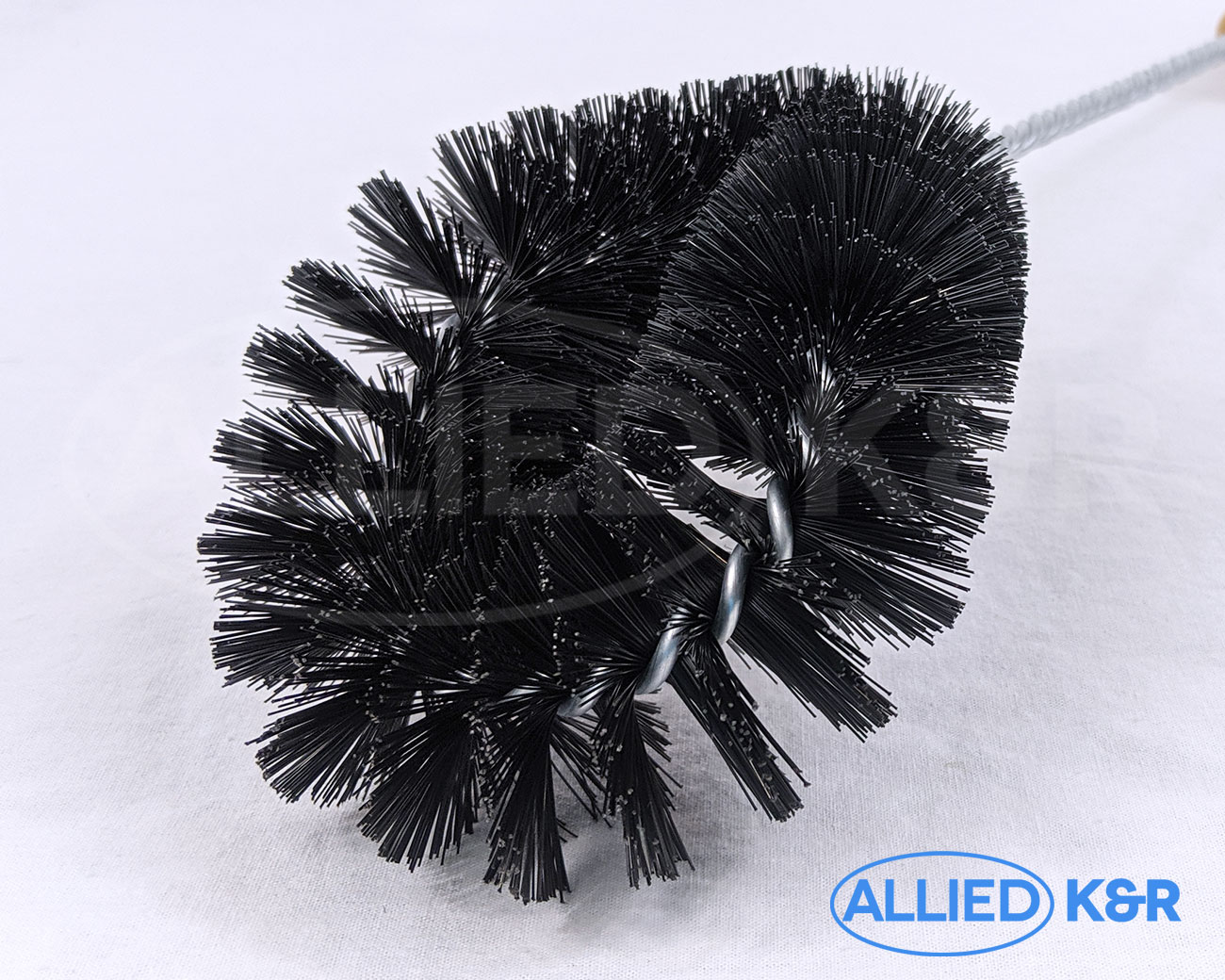
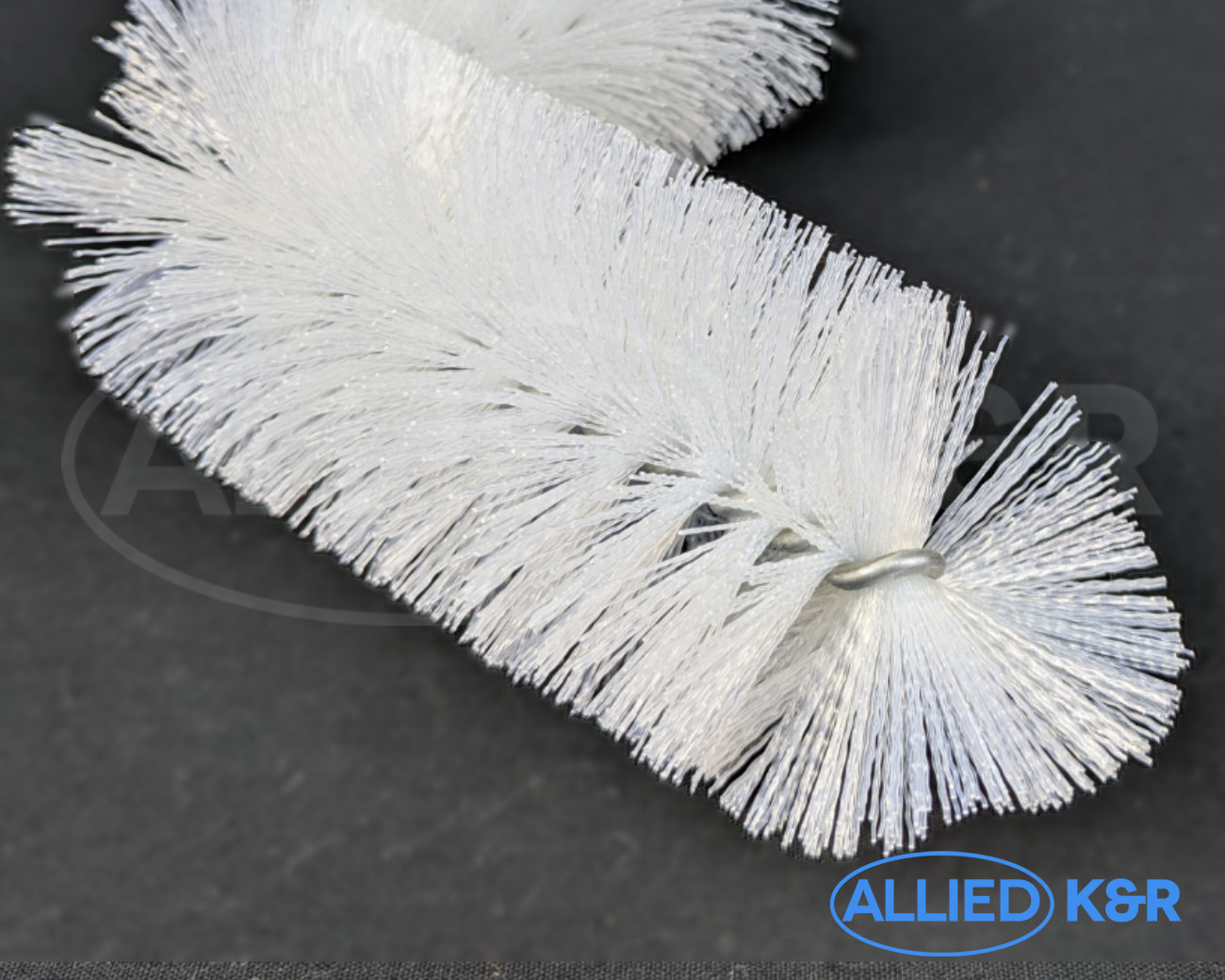
Polybutylene terephthalate (PBT) Polyester
Polybutylene terephthalate (PBT) polyester is a thermoplastic polymer. It has excellent bend recovery, does not absorb water and has excellent chemical resistance. It’s ideal for hard wet application such as a paintbrush.
Polypropylene (PP)
Polypropylene (PP) is one of the most popular thermoplastic polymers. It has excellent bend recovery, does not absorb water and great flex fatigue.
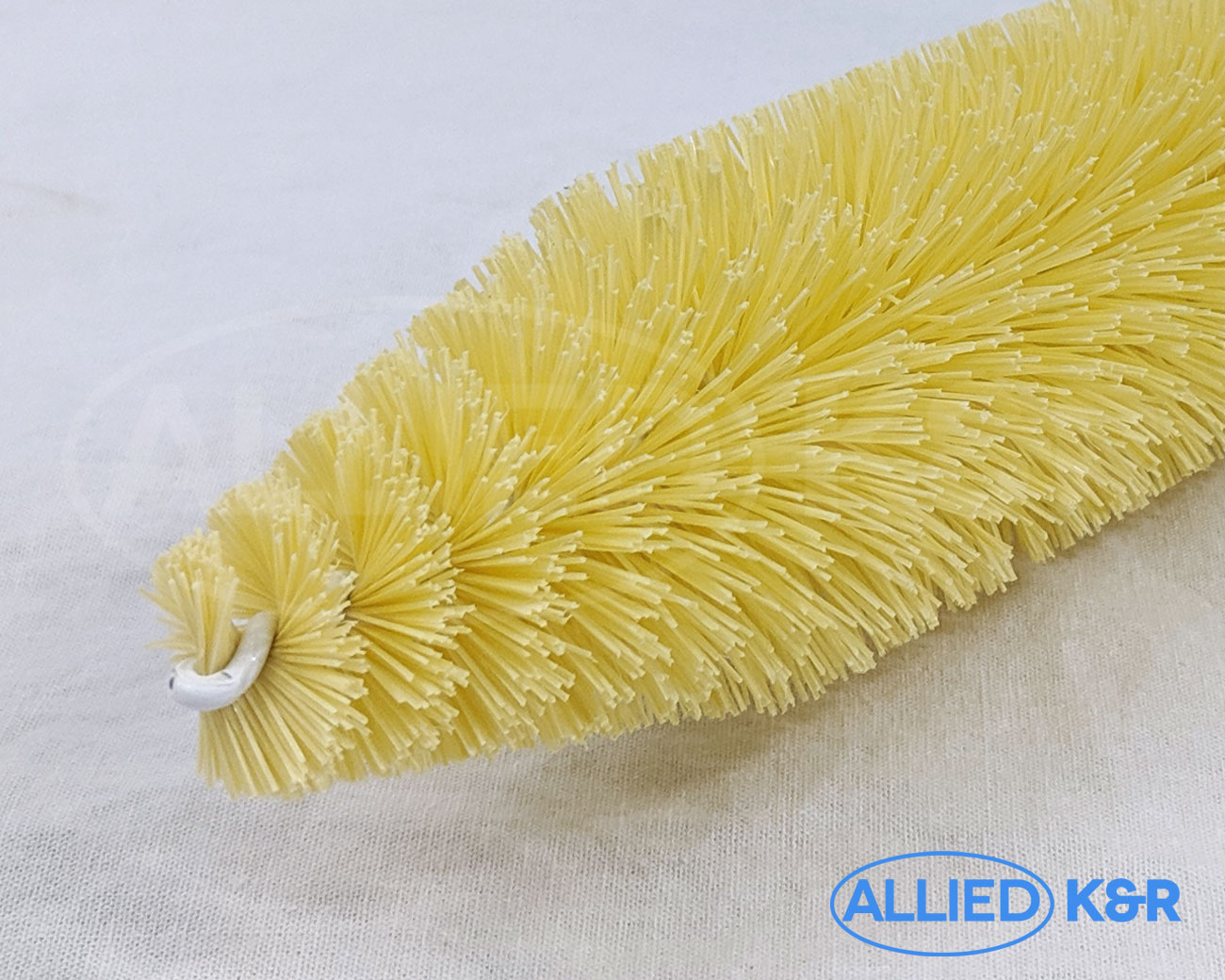
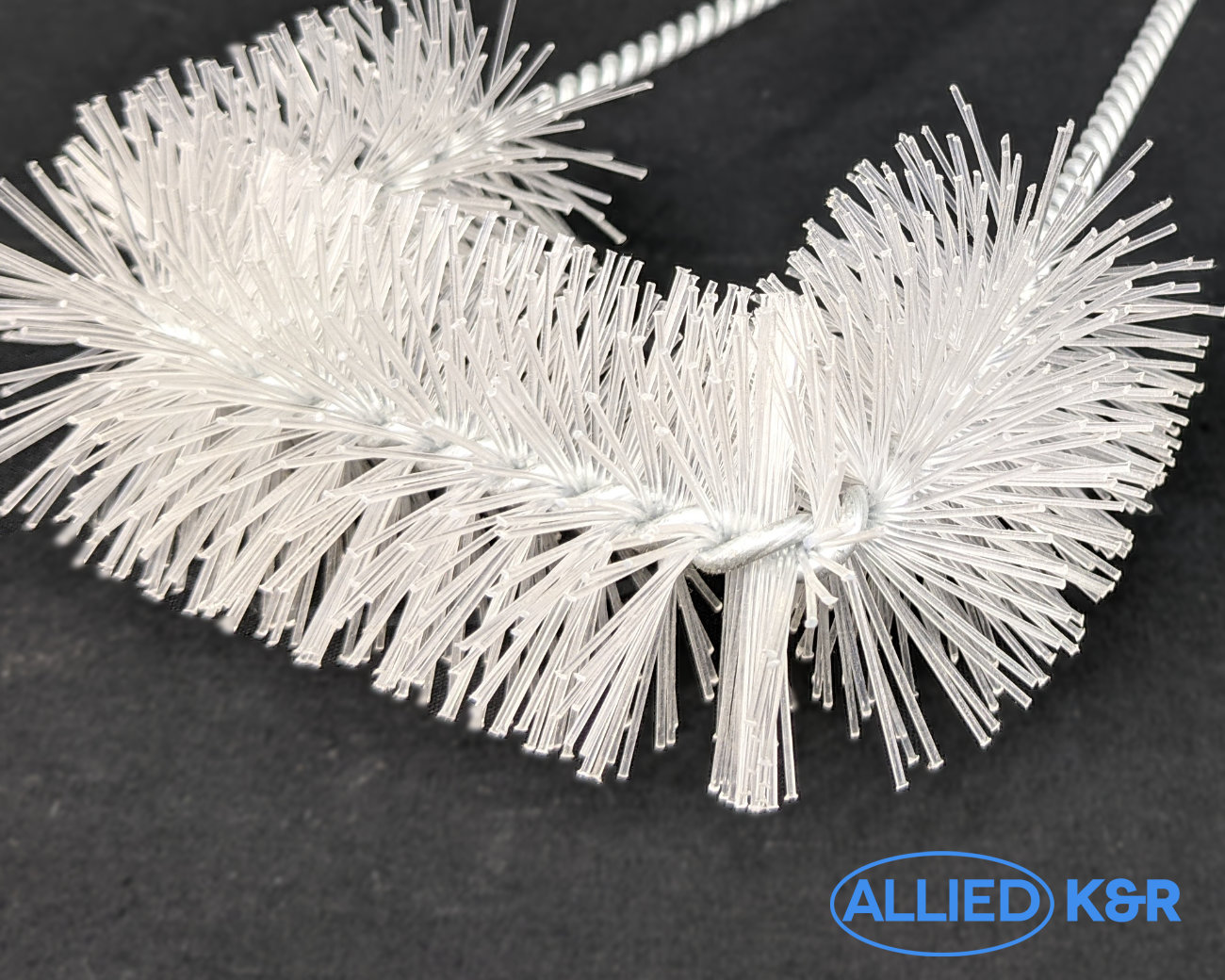
Perfluoroalkoxy alkanes (PFA) Fluoropolymers
Perfluoroalkoxy alkanes (PFA) is a fluoropolymer. It has a high temperature resistance, chemical resistance and does not absorb water. It’s ideal for cleaning high temperature dry or wet cooking surfaces.
Tampico
Tampico is a natural vegetable fiber made from agava lechuguilla plant grown in Mexico. It is heat, alkali and acid resistant. Its slight abrasiveness and high absorbency rate makes it ideal for wet cleaning and scrubbing applications.
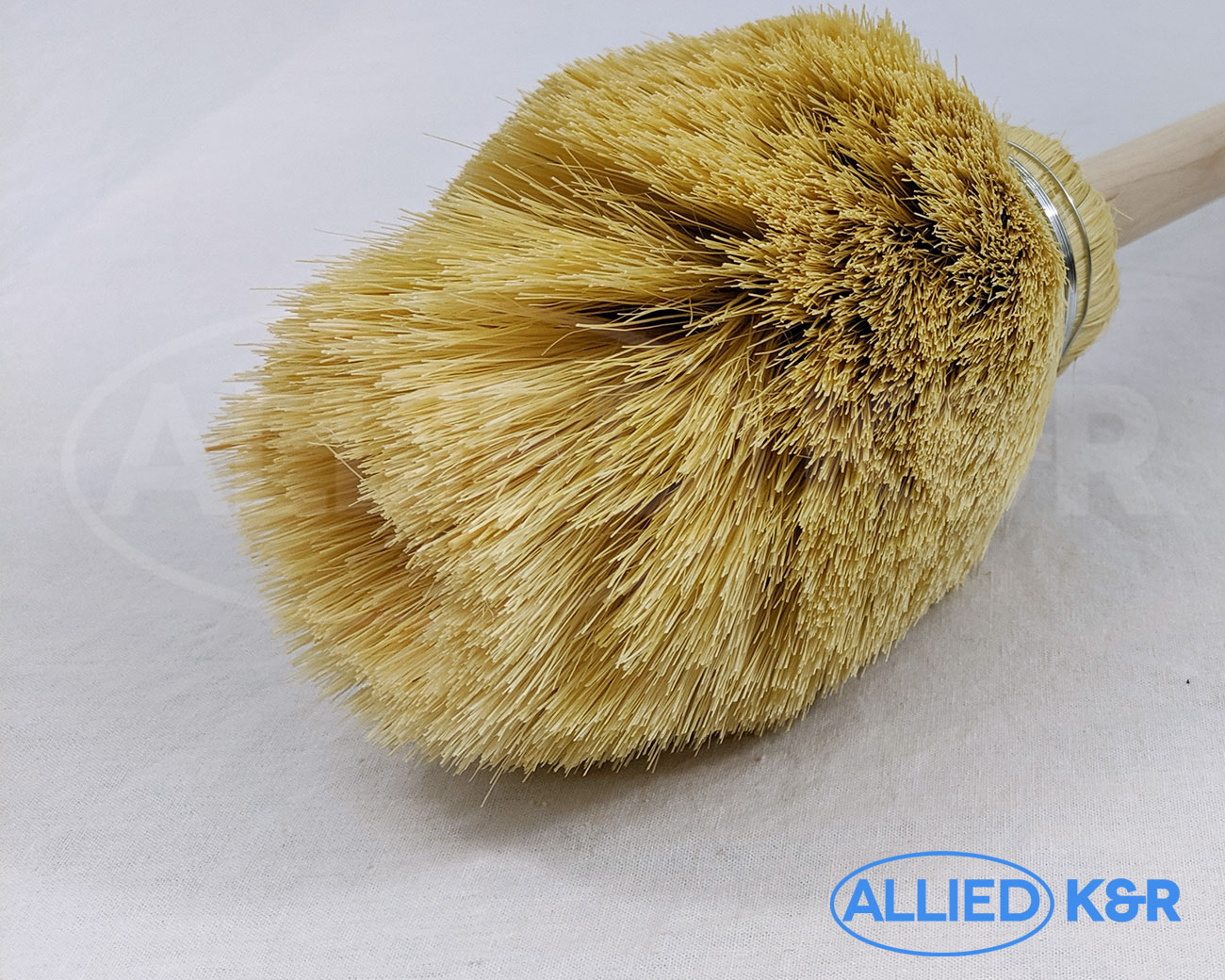
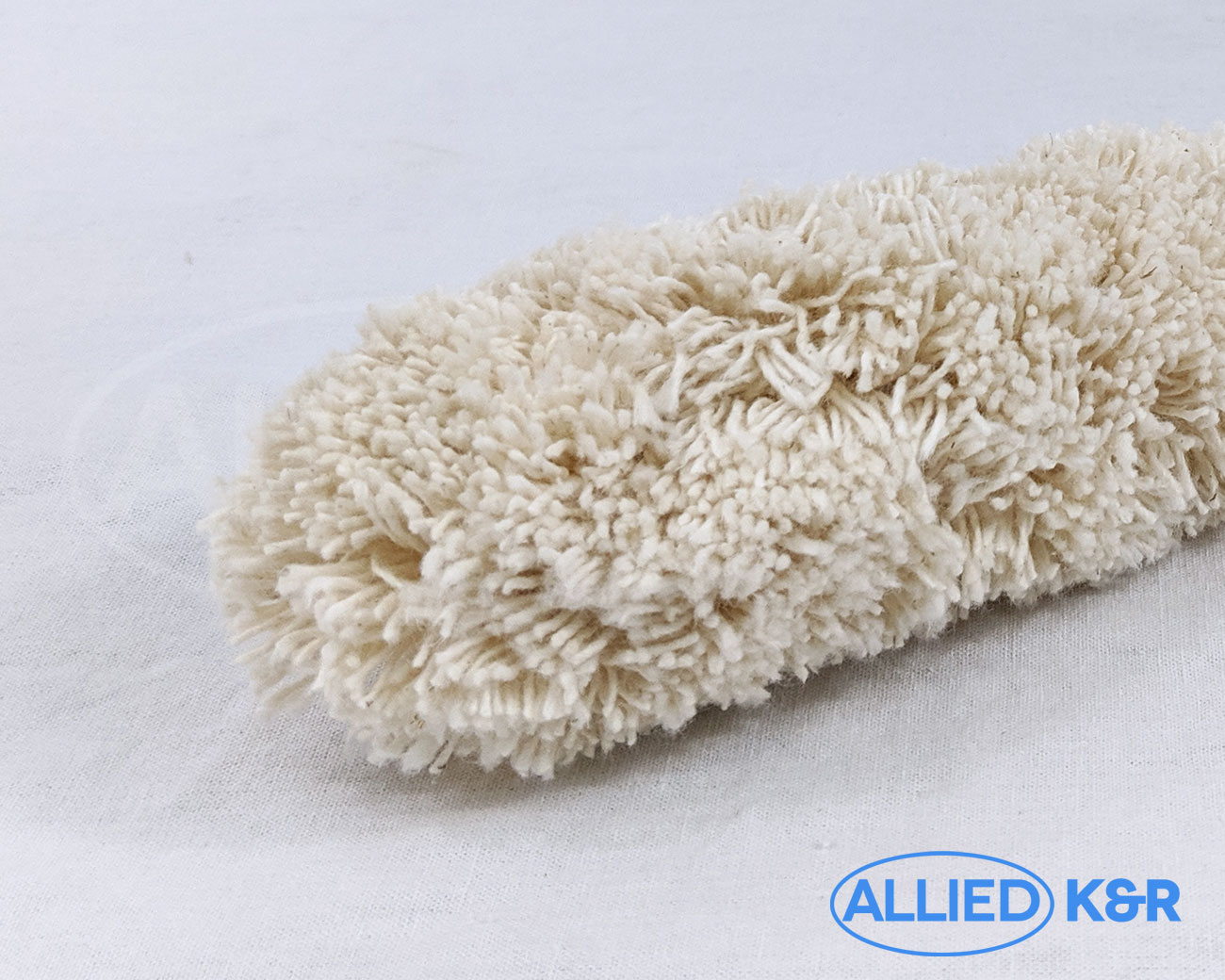
Cotton
Cotton is a natural fiber made from gossypium plant grown in subtropical regions of the Americas. It is highly absorbent and soft. It’s ideal to pick up or apply liquids and fine materials.
Horsehair
Horsehair is hair from a horse’s mane or tail. It is soft and non-conductive. It’s ideal for scratch-free dry cleaning and buffing.
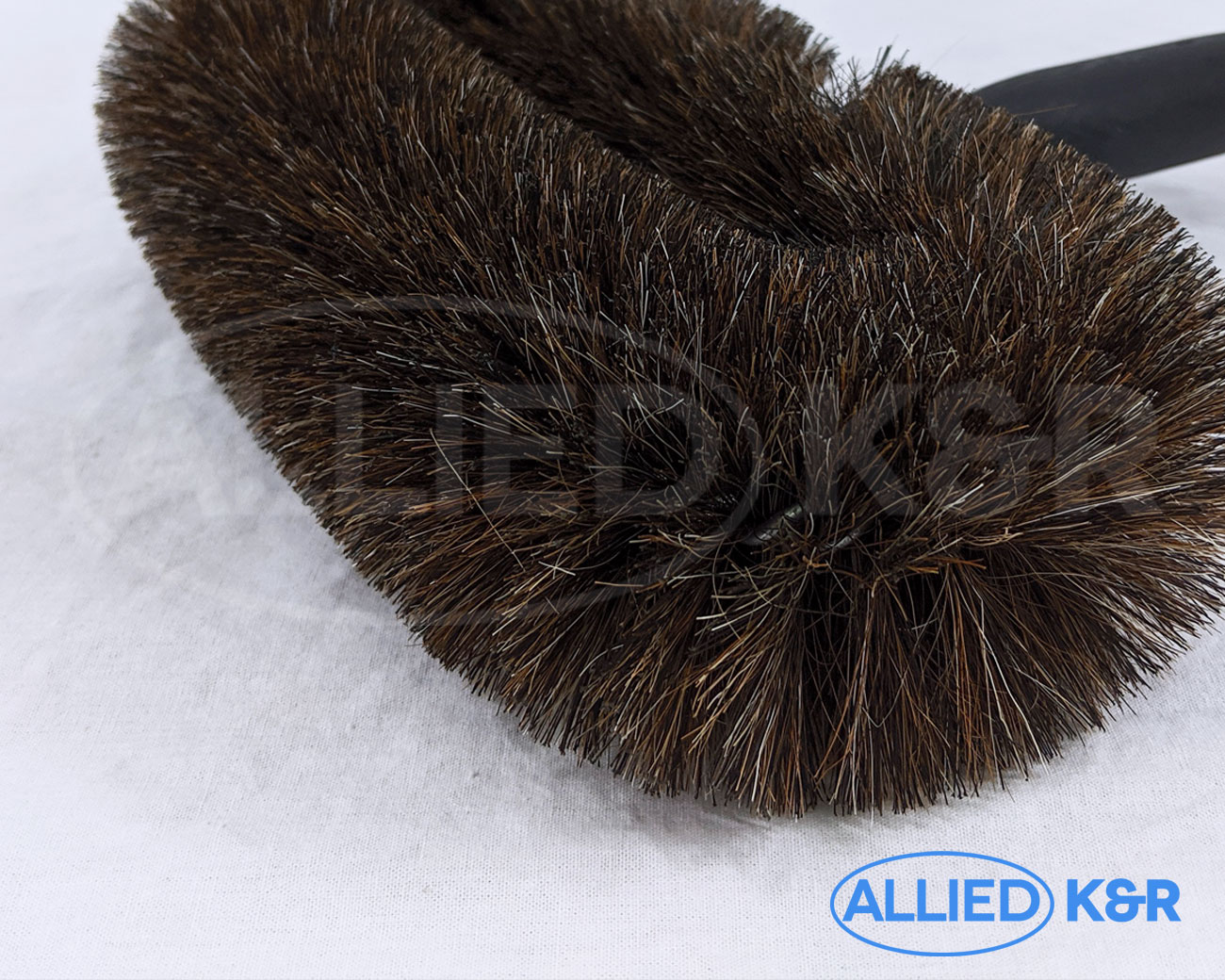
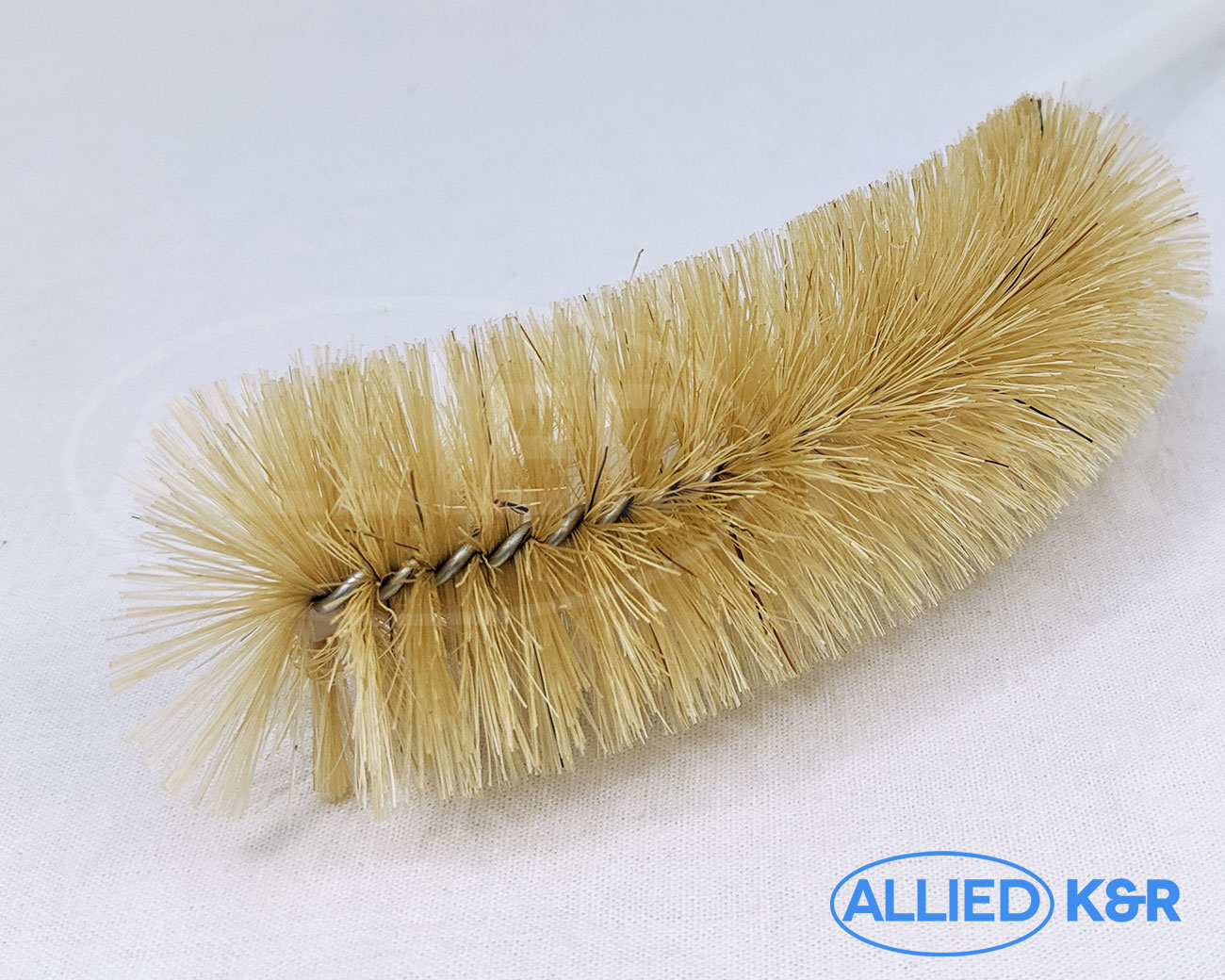
Natural Bristle
Natural Bristle is hair from the spine of a pig, hog or boar. It is non-conductive and stiff with split ends called flagged. Flag ends are ideal for dry cleaning such as dust.
Proud Member of
American Brush Manufacturers Association
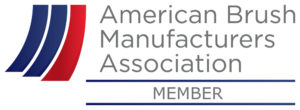

 Made In USA |
Made In USA | 